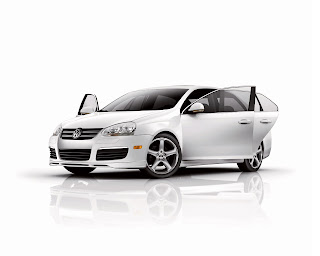Finally, the Volkswagen Jetta should be frugal on the back end. Diesel VWs have historically retained more value than gas-powered models. Diesel aficionados seek them out on the used-car market. Their engines are famously durable. Among a wave of diesel cars and trucks — whose advanced emissions systems let them meet pollution rules in all 50 states -- the Volkswagen Jetta is the people’s choice, costing half as much as diesels from Audi, BMW and Mercedes-Benz. The VW is also the current champion of diesel economy. And its 4-cylinder engine achieves impressively low emissions without the need to carry several gallons of liquid urea, which helps to cleanse the emissions of larger diesel cars and S.U.V.’s. Like most new diesels, the Volkswagen Jetta combines a turbocharger and ultra-high-pressure fuel injectors to raise power and precisely tailor combustion, with up to five sprays of fuel for every big bang. Gone are the drawbacks of older diesels: there’s no smell, no smoke, no shake. With 140 horsepower and an impressive 236 pound-feet of torque, the TDI is barely louder at idle than a gasoline Volkswagen Jetta; it actually seems quieter on the road. While the Volkswagen Jetta is officially a compact, in practical terms it bridges the gap between small and midsize models. The enormous trunk has more usable space than those of many bigger sedans. The back seat is spacious enough to handle three adults in a pinch, with a relatively broad and comfortable center perch. The interior looks mildly Spartan, but in a German, Hugo Boss way that softens the blow. Handsome gauges and shapely, supportive seats are familiar VW items. All told, the Volkswagen Jetta feels more sophisticated and comfortable than the Toyota Prius. With all the torque hunkered at low engine speeds, the diesel doesn’t rev to the sporty heights of gasoline Jettas. The suspension is mildly underdamped, meaning the TDI rides softly but seesaws briefly after absorbing high-speed dips. Standard 16-inch wheels and low-resistance tires save fuel, not time. But compared with a docile Prius or Civic Hybrid, the Volkswagen Jetta is virtually a road warrior. The VW churns up all the passing power you’d want from 30, 50 or even 70 m.p.h. The steering is sporty and precise. Add a stiff suspension and sticky tires, and the TDI would be a credible Euro-style sport sedan, sacrificing perhaps 1 or 2 m.p.g. The Volkswagen Jetta also brakes like a normal car. In contrast, applying a hybrid’s brakes — connected to regenerative systems that return energy to the battery — is like stepping into a tuna casserole. The manual transmission is a bit easy to stall in first gear, but you can crawl in second with no need to hold the accelerator, making for less clutching and rowing in traffic. VW’s terrific dual-clutch automated manual transmission — which has been mimicked by Porsche, BMW and others — costs $1,100 extra and brings a 29/40 mileage rating.














-1.jpg)
0 comments:
Post a Comment